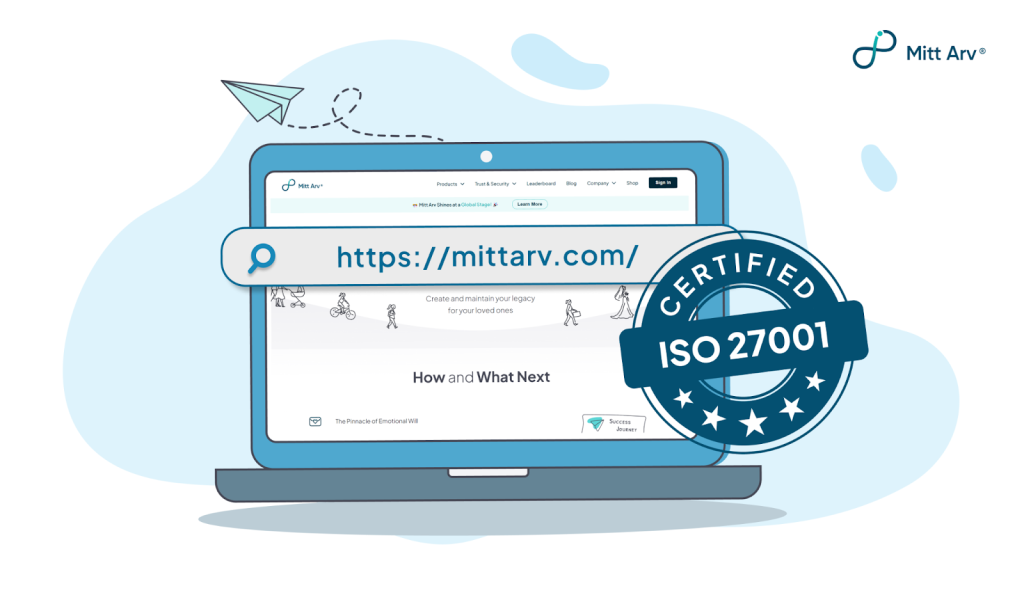
1 . What is Insurance and Why is it Important?
Insurance is just like a promise: you pay a little now to avoid a big financial burden later. Insurance companies collect premiums from policyholders, and when someone deals with an emergency, such as medical bills or vehicle repairs, they use that pool of money to help cover the costs.
The need for insurance is particularly advantageous in various walks of life, for example, insurance plans provide numerous tax benefits that might help you lower your taxable income. Life insurance schemes are also effective financial tools for retirement planning. Several insurance plans provide guaranteed full protection of your invested assets. These are just a few reasons why insurance is one of, if not the most important, financial protections in one’s life.
Now that you know what insurance is, and why it is important, let’s take a look at some different types of insurance in India for a better understanding!
Benefits of Insurance in India
Insurance is a way to protect yourself and your family from unexpected events like accidents, illness, or loss. It offers many benefits that help provide financial security and peace of mind. Here are some key advantages:
- Financial Protection: Insurance covers big expenses like hospital bills, car damage, or loss of income due to death or disability.
- Peace of Mind: Knowing that you’re protected from emergencies reduces stress and lets you live with confidence.
- Helps in Emergencies: During accidents, illness, or natural disasters, insurance gives you quick financial support when you need it most.
- Supports Family After Death: Life insurance helps your family manage expenses if something happens to you.
- Encourages Saving: Some insurance plans, like endowment or ULIPs, also help you save and invest for the future.
- Tax Benefits: You can save on taxes by paying insurance premiums under Section 80C and 10(10D) of the Income Tax Act.
- Protects Assets: Insurance covers damage to things like your house or car, helping you avoid big repair costs.
- Promotes Business Stability: For businesses, insurance reduces risk and protects against losses from theft, fire, or legal claims.
In short, insurance gives safety, support, and future security
Read More: Understanding Goods and Services Tax: How It Affects Your Daily Expenses
2. Types of Insurance in India
Life Insurance
Life insurance is a contract that provides cash compensation in the event of death or disability. Some life insurance policies offer financial reimbursement after retirement or after a specified period.
Life insurance ensures your family’s financial security, even when you’re not around.. When acquiring a life insurance policy, you can either pay a flat sum or make recurring payments to the insurer.
These are referred to as premiums. In exchange, your insurer agrees to pay a guaranteed sum to your family in the case of death, disability, or at a certain time.
How to choose the right insurance plan in India ?
Understand the different types first!
Some of the types of Life Insurance are :
Whole Life Insurance: This plan offers lifelong coverage until you are 99 or 100 years old, as the name implies. In the tragic event of your death, a specific amount of money is given to your family. In addition to death benefits, this plan offers you a lending facility and a bonus.
The person insured pays a fixed premium to the insurance provider during the term. Whole life insurance policy coverage is maintained as long as all premium payments are made in full and on schedule. The coverage ends upon the completion of the policy term, that is, when the policyholder becomes 99 or 100.
The key benefit here is that your premiums stay fixed during the policy’s term, allowing you to benefit from lower monthly payments over time. You also have assurance about the premium amount, so you can manage your expenses properly.
Term Insurance: The most basic kind of insurance is term insurance, which offers your family coverage in the event of your death in the form of a lump sum payment. You and your family won’t receive any money if the policyholder exceeds the term limit. On the other hand, you receive the full premium returned after the policy term when you purchase the Return of Premium Term Insurance plan.
If you are 30 years old and buy a term insurance plan for ₹1 crore with a term of 60 years, you’ll need to pay around ₹10,000 per year as a premium. If something unfortunate happens and you pass away at the age of 45, your nominee or your spouse will receive the full ₹1 crore. But if you live till the end of the policy term (say, age 90), there won’t be any payout. Term insurance is designed to protect your family in case of an unexpected loss not as a return on investment.
Endowment Policy: An endowment policy has a set duration, just as a term policy.The difference between term and endowment insurance is that your family will get a lump sum payment in the case of your passing. With an endowment policy, however, you receive the maturity funds after the term period, in contrast to a term insurance.
An endowment plan is perfect for generating an additional source of income. It can provide you with a lump sum income in the future. Furthermore, the plan protects your loved ones financially in the event of an unfortunate tragedy. This type of life insurance may be appropriate if you wish to accumulate funds at a low risk while financially protecting your loved ones.
Unit-linked insurance (ULIPs): ULIPs offer both investment and insurance benefits. The remainder of your money is invested in debt and equity, with a portion going toward your insurance coverage. In the tragic event that you pass away, your family will get a lump sum payment.
When you invest in a ULIP, your premium is split—part of it gives you life cover (say ₹75 lakhs), while the rest is invested in funds of your choice. If something unfortunate happens, your loved ones receive the higher of the two: your plan benefit or the current fund value. That’s not just insurance, but it’s reassurance. With ULIP, you’re not only securing your family’s future but also building wealth along the way. One plan. Dual benefits. Maximum peace of mind.
General Insurance
On the other hand, general insurance shields you against unforeseen circumstances that may impact your house, car, health, vacation, and other things. Giving you peace of mind is more important than simply paying for costs. When things go wrong, general insurance lets you recover without draining your money, whether you have a medical emergency, your car is stolen, or your property is destroyed. It is adaptable, reasonably priced, and aimed at meeting your basic needs.
Fire Insurance: Fire insurance covers or compensates for fire-related damage to your property or commodities. It covers the costs of replacing, reconstructing, or repairing the insured property and its adjacent structures. It also covers fire-related damage to third-party property. In addition, it covers the expenses of those whose livelihoods have been disrupted by the fire outbreak.

Home Insurance: Home insurance is coverage that pays or covers you for any damage to your home that results from natural catastrophes, man-made disasters, or other dangers. It covers liabilities resulting from fire, burglary, theft, flood, earthquakes, and sabotage. It not only provides financial protection for your home, but it also protects the items inside.
Motor Insurance: Motor insurance is for your automobile or bike, just as health insurance is for your health. It is a general insurance policy that protects your vehicles from financial loss due to accidents, damage, theft, fire, or natural disasters. You can also purchase automobile insurance for commercial vehicles. Furthermore, in India, possessing at least a third-party insurance policy is mandatory.
Choosing an insurance plan is only the first step. Once you’ve decided on the insurance you need, you’ll be in charge of the paperwork, claims, and other technical difficulties, such as document verifications or settlement issues. Also, keep in mind that different insurances will require different documents for claims. Contact your insurance agent or financial advisor to confirm what documents are needed for insurance claims.
Now, you need to learn how to manage and secure your insurance records. Since your unclaimed and unprotected insurance can cost you crores of rupees. Let’s take a deeper look!
Read More: Everything You Need to Know About Income Tax Slabs and Regimes in India
3. Why is Insurance important for your Legacy Planning?
Mentioning insurance papers in a will is a thoughtful and sensible option that can spare families a lot of stress and financial hardship. When someone passes away, their family is already grieving. Insurance and legacy planning can help your loved as a shield against bad times.
If the insurance paperwork is missing or no one knows they exist, it is considerably more difficult for them to file claims. As a result, money that could have been used for home insurance payments, medical expenses, or pension plans may go unclaimed. To avoid this, understand why you should mention insurance in your will.
A will serves as a guide for the family, indicating what the individual possessed and what has to be done. Families can take quick action by clearly identifying insurance plans in their wills, as well as where the documents are maintained and who the beneficiaries are.
That’s why it’s important not just to buy insurance but also to mention it in your will and keep your records safe, preferably in a trusted platform like Mitt Arv.
Mitt Arv securely stores your insurance policies and important documents, ensuring your family can easily access them when you’re no longer around. Our VeriLife Algorithm intelligently identifies your assets, verifies the time, and helps determine when the information should be shared with your loved ones. This prevents confusion, delays, and missed claims. By using encryption and thoughtful automation, Mitt Arv protects your legacy and ensures your family isn’t left facing paperwork chaos in a time of grief.
4. One Mistake Can Cost You Crores!
Many insurance claims go unclaimed or are denied because important documents are missing. If papers aren’t stored properly, families may face delays or even lose money. Keep your insurance paperwork safe and easy to find, so your loved ones can access it quickly when they need it most.
According to the Insurance Regulatory and Development Authority of India (IRDAI), unclaimed funds in the life insurance sector amounted to Rs 20,062 crore as of March 2024. This highlights the extent of the problem when it comes to unclaimed funds and insurance schemes.

Insurance policies are also at risk of cyber fraud and other crimes. If your documents fall into the wrong hands, someone could misuse them or even steal your identity. That’s why it’s important to be smart about which insurance policy you choose and who you trust with your information.
In 2025, a man from Pune lost nearly ₹2 crore in an insurance fraud. To avoid falling into the same trap, it’s important to store your insurance documents with utmost care. Scam rackets often target elderly or unaware individuals, but anyone can become a victim.
In another shocking case, the Enforcement Directorate (ED) uncovered an insurance scam worth over ₹100 crore. Always verify calls, emails, and agents before sharing personal details. Being alert and organised is the best way to protect your money and future.Knowing how to avoid insurance fraud in India 2025 becomes a key step to secure your assets.
While all this information might be overwhelming to understand how to secure insurance papers digitally, you need to understand it is not that difficult. Recording and storing assets are now simpler than ever with just one app, Mitt Arv!
Read More: Give Your Digital Legacy the Care It Deserves with Mitt Arv Premium
5. Mitt Arv: Safeguarding Your Assets, Securing Your Legacy
With Mitt Arv, recording all your assets is simple and secure. Whether it’s your insurance details, property documents, or investments, Mitt Arv helps you store everything in one place. Mitt Arv is ISO 27001 certified and uses data encryption to keep your information safe.

But that’s not all. You can also choose trusted people to share your records with during emergencies or serious situations. It’s built to be easy for everyone to use. Just download Mitt Arv, list your insurance and asset details, and select who you want to share it with. Secure your legacy with confidence and trusted protection.
Insurance serves the goal of protecting the people you care about, and at Mitt Arv, we share the same message. Knowing that your loved ones would be supported in the event of an emergency provides you with peace of mind. Choosing Insurance alone, however, is not sufficient; you also need to keep your records secure and accessible. This is when Mitt Arv comes in useful. It lets you share your most essential documents with those you trust and keep them all in one safe location. Your family won’t have to worry about lost documents or delayed claims when Mitt Arv is present.
Frequently Asked Questions – FAQs
1. What are the main types of insurance in India?
Life, health, motor, home, travel, and personal accident insurance are the most common types available to individuals in India.
2. Why is insurance important?
Insurance protects against financial losses due to emergencies, offering security, peace of mind, and support for your family’s future.
3. What’s the difference between term insurance and endowment?
Term plans offer pure protection, no returns. Endowment combines savings with insurance, offering a payout on maturity or death.
4. Are there tax benefits to life insurance?
Yes, premiums qualify for deductions under Section 80C, and maturity amounts are exempt under Section 10(10D) of the Income Tax Act.
5. Why include insurance in your will?
Including insurance ensures your nominee can claim easily, avoids disputes, and helps family access benefits without unnecessary legal complications.
6. How do I keep insurance documents safe?
Store physical copies securely, upload to DigiLocker or the cloud, and inform trusted family members about locations and access instructions.
7. What common mistakes lead to denied claims?
Non-disclosure of facts, wrong nominee details, policy lapses, or delayed claims often result in rejection by the insurance company.
8. How to avoid insurance fraud in India?
Buy only from IRDAI-licensed agents, verify documents, avoid sharing OTPs, and read policy terms carefully before making any payment.
9. How to choose the right insurance plan in India?
Assess your financial needs, family dependents, and future goals. Compare premiums, claim settlement ratios, coverage, and exclusions.
10. Can I claim both 80C and 80D deductions?
Yes, Sections 80C and 80D are separate. You can claim benefits under both if you qualify.